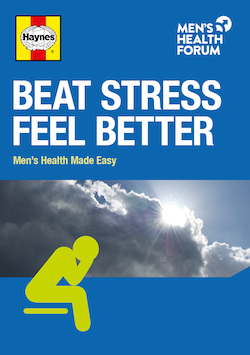Know Your Knob: all our penis health links
Symptom Watch

Knowing your own body is the best way to catch illnesses and diseases sooner rather than later. This article highlights some symptoms for men to be aware of.
A lump in your balls
Testicular cancer is the most common cancer in men aged 20-35. About 2,000 men a year are diagnosed. But if caught in time it can be effectively treated and deaths are rare.
Get to know your balls. There is a little bump at the back of each testicle where the epididymis, the tube that lets the sperm out, sits. Apart from that your balls should feel smooth and firm not lumpy or hard. If you have pain in your testicles or find a hard lump or swelling or if one testicle becomes different from the other, see your GP.
It probably won’t be cancer - about 1 lump in 25 is cancerous - but it could be the sign of another condition which if not treated may cause you - and your sex life - serious problems in the future:
- varicocele - enlarged veins in the testicles;
- hydrocele - a swelling caused by fluid around the testicle;
- epididymal cyst - a lump caused by fluid in the epididymis;
- testicular torsion - or twisted testicle which can be very painful (this is a medical emergency and requires surgery as soon as possible);
- epididymitis - inflammation in the epididymis usually caused by chlamydia, a sexually-transmitted infection;
- epididymo-orchitis - much the same but affecting all the scrotum, making it red and tender.
Changes in your moles
Get to know where your moles are - including the ones you can't see - and keep an eye on them.
The NHS have developed a checklist called the ABCDE:
- A – asymmetrical - does the mole have two distinct halves or an irregular shape?
- B - border – does the mole have a notched or ragged border?
- C - colours – is the mole a mix of two or more colours?
- D - diameter – is the mole larger than 6mm (1/4 inch) in diameter?
- E - enlargement or evolution – has the mole changed its appearance or size over time?
If you’re answering yes to any of these questions, see your GP. There is also a mole checker on the NHS website.
You’re at greater risk of skin cancer if you have fairer skin, fairer hair, blue eyes, more moles or have been seriously sunburnt or use sunbeds.
Feeling down
Feeling down is normal at times but it can turn to something more serious without us really noticing. Depression is real and common. One in four of us will have a mental health problem this year. They’re responsible for half of all long-term absences from work.
Men are far more likely to commit suicide than women and the vast majority of those men began by feeling down. Seeking help early is not a sign of weakness. It is the smart thing to do. It will keep you in work and it may save your life.
All sorts of stresses can bring us down: work (or lack of it), money, bereavement (and other endings including retirement, moving house, splitting up with a partner, changing job or children leaving the family home), physical ill health, partners and friends (and their absence - loneliness), sex and sexuality, drink and drugs, addictions and more. Get to know your warning signs. These can include:
- Eating more or less than normal
- Mood swings/anger
- Low self-esteem
- Feeling tense or anxious
- Not sleeping properly (or wanting to sleep all the time)
- Poor memory or forgetfulness
- Excessive drinking and/or drug use.
- Feeling really tired and lacking in energy
- Withdrawing from family and friends
- Behaving out of character
- Finding it hard to concentrate and struggling at work
- Losing interest in things you usually enjoy
- Having unusual experiences, like seeing or hearing things that others don’t.
Peeing problems
The prostate sits below your bladder. It’s about the size of a walnut but as you get older it grows. It can push on the bladder, making peeing difficult. This may not sound like much but if you’re going for a pee frequently and are up half the night, it can seriously damage your quality of life.
These are the symptoms to watch out for:
- a weak flow
- intermittency — a flow which stops and starts
- hesitancy — having to wait before you start to go
- frequency — having to urinate more often than previously
- urgency — finding it difficult to postpone urination
- nocturia — having to get up at night to urinate.
Prostate growth is common. It is probably not cancer but it could be (prostate cancer is the most common cancer in men). Whether it is cancer or not, your GP can refer you for treatment which will considerably improve your quality of life.
Erection problems
Erectile dysfunction (ED) is common. Half of all men over 40 have had trouble getting an erection at least once.
What we’re talking about here are problems getting an erection or keeping one. Don’t suffer in silence because it’s not only your sex life that may be threatened.
Erection problems can be an early warning sign of a number of serious health problems including heart disease, diabetes, high blood pressure and depression. They could also be sign of high cholesterol or low testosterone.
Be aware that ED can also be caused by smoking, alcohol and drugs (both prescription and recreational).
Seeing your GP means the more serious causes can be investigated and will also enable you to get help with the actual ED.
Changes in bowel habits
Bowel cancer is one of the most common types of cancer. It will affect about one person in 20. There are around 40,000 new cases diagnosed in the UK every year.
Be aware of what’s normal for you when you go to the toilet. Things will change a little if you change your diet. But there are warning signs.
See your GP if you experience one of the changes listed below for more than a few weeks:
- blood in your stools
- diarrhoea or constipation for no obvious reason
- a feeling of not having fully emptied your bowels after going to the toilet
- pain in your abdomen (stomach) or your anus (back passage)
- persistent feeling of bloating.
Ask your GP about bowel cancer screening which should be available if you’re over 60 and may be available if you’re 55.
Other symptoms to watch for
- Coughing (for more than three weeks)
- Unexplained bleeding (such as blood in urine, vomit or when you cough or bleeding from your backside)
- Unexplained weight-loss
These could be signs of cancer.
- Unexplained shortness of breath/breathing difficulties
- Serious chest pain (see symptoms of a heart attack)
These could be signs of heart disease.
And the easiest symptom of all…
- Are your trousers getting too tight round the middle?
This is almost certainly a sign you're putting on weight! If you want to lose some, check out our Food and Exercise FAQs.
The aim of this article is not to get everybody with a slight twinge in the chest rushing off to A&E but to raise awareness of possible symptoms of more serious diseases. If you become aware of any of the above you can make a routine appointment with your GP in good time.
We don't currently post comments online but are always keen to hear your feedback.
MAIN IMAGE includes: Battersea Power Station by George Rex, What time is it by Scott Robinson, Ladies and gents by Elliot Brown and Sol Searching by Casey Fleser licensed under CC BY 2.0 and CC BY-SA 2.0.
Date published
06/08/15
Date of last review
06/08/15
Date of next review
06/08/18
References
|
The Men’s Health Forum need your support It’s tough for men to ask for help but if you don’t ask when you need it, things generally only get worse. So we’re asking. In the UK, one man in five dies before the age of 65. If we had health policies and services that better reflected the needs of the whole population, it might not be like that. But it is. Policies and services and indeed men have been like this for a long time and they don’t change overnight just because we want them to. It’s true that the UK’s men don’t have it bad compared to some other groups. We’re not asking you to ‘feel sorry’ for men or put them first. We’re talking here about something more complicated, something that falls outside the traditional charity fund-raising model of ‘doing something for those less fortunate than ourselves’. That model raises money but it seldom changes much. We’re talking about changing the way we look at the world. There is nothing inevitable about premature male death. Services accessible to all, a population better informed. These would benefit everyone - rich and poor, young and old, male and female - and that’s what we’re campaigning for. We’re not asking you to look at images of pity, we’re just asking you to look around at the society you live in, at the men you know and at the families with sons, fathers and grandads missing. Here’s our fund-raising page - please chip in if you can. |




